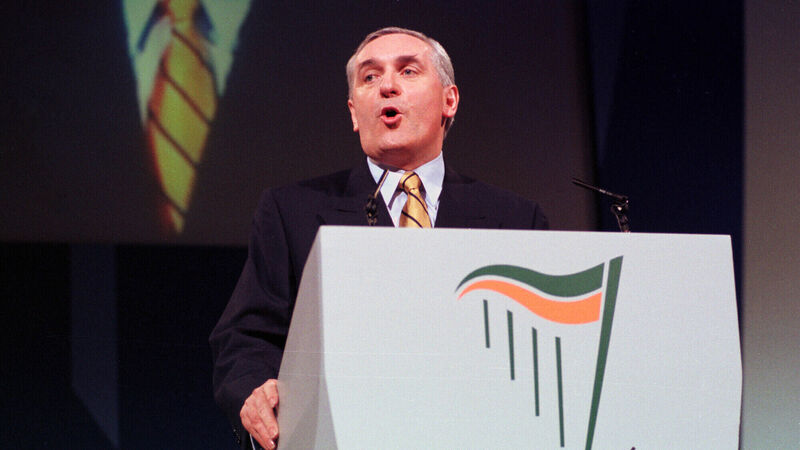Daniel McConnell: Bertie comes back in from the cold

The onset of Brexit in 2016 allowed Bertie Ahern to rehabilitate his public persona as he was able to speak with credibility on the potential impact on Northern Ireland. Picture: RollingNews.ie
Try from €1.50 / week
SUBSCRIBE
The onset of Brexit in 2016 allowed Bertie Ahern to rehabilitate his public persona as he was able to speak with credibility on the potential impact on Northern Ireland. Picture: RollingNews.ie
Almost 11 years ago in March 2012, I was a political journalist with the Sunday Independent.
After 15 years of hearings and scandals, the final Mahon Tribunal report was due for publication that week, which we all expected to be devastating in relation to former taoiseach Bertie Ahern.
Already a subscriber? Sign in
You have reached your article limit.
Annual €130 €80
Best value
Monthly €12€6 / month
Introductory offers for new customers. Annual billed once for first year. Renews at €130. Monthly initial discount (first 3 months) billed monthly, then €12 a month. Ts&Cs apply.
CONNECT WITH US TODAY
Be the first to know the latest news and updates
Newsletter
Sign up to the best reads of the week from irishexaminer.com selected just for you.

Select your favourite newsletters and get the best of Irish Examiner delivered to your inbox
Tuesday, February 10, 2026 - 12:00 PM
Tuesday, February 10, 2026 - 10:00 AM
Tuesday, February 10, 2026 - 12:00 PM
© Examiner Echo Group Limited